312-535-4625
60 W. Randolph Street, Suite 300, Chicago, IL 60601
5 Convenient Locations - Available 24/7 - We can travel to you
Recent Blog Posts
Can Nursing Home Patients Die if They Fall Out of Bed?
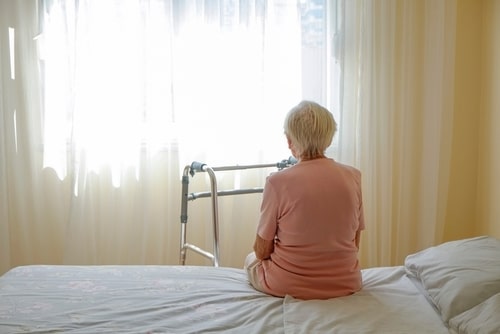 In nursing homes across Illinois, where the comfort of aging loved ones is left in the hands of healthcare professionals, the risk of falls remains one of the greatest dangers of all. While most think of nursing home falls as taking place when a resident is walking from one spot to another, the simple act of falling out of bed can have terrible consequences, raising questions about the quality of care and the vulnerability of residents in nursing homes. If you are concerned with the quality of care your loved one is receiving at his or her nursing home or if your loved one has already suffered an injury, contact an attorney right away.
In nursing homes across Illinois, where the comfort of aging loved ones is left in the hands of healthcare professionals, the risk of falls remains one of the greatest dangers of all. While most think of nursing home falls as taking place when a resident is walking from one spot to another, the simple act of falling out of bed can have terrible consequences, raising questions about the quality of care and the vulnerability of residents in nursing homes. If you are concerned with the quality of care your loved one is receiving at his or her nursing home or if your loved one has already suffered an injury, contact an attorney right away.
At Schwartz Injury Law, our highly trained staff of qualified lawyers has ample experience in handling cases involving nursing home injuries, many of which are caused by neglect or abuse. From the very moment clients call our firm, they will be speaking with an actual attorney, not some intake service. This personalized client contact makes our firm distinct from the vast majority of competitor firms. Let us get to work and help you solve your legal matters.
How Do I Know if My Loved One is Getting Exercise in Their Nursing Home?
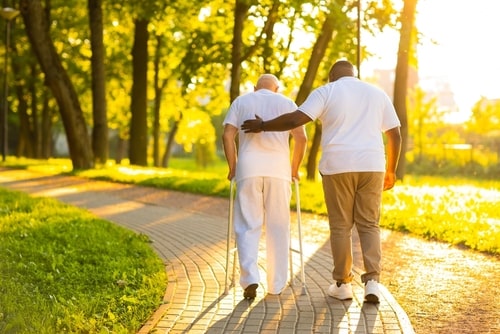 As a concerned and loving family member, ensuring that your loved one is receiving proper care and attention in a nursing home is of the highest importance. One crucial aspect of their well-being is ensuring they get the right amount of exercise to maintain their physical health and overall quality of life. However, in cases of nursing home neglect and abuse, it can be challenging to know for certain if your loved one is receiving the exercise they need. If you are concerned that your family member is not getting the right amount of exercise and it is affecting their health, contacting a lawyer is wise.
As a concerned and loving family member, ensuring that your loved one is receiving proper care and attention in a nursing home is of the highest importance. One crucial aspect of their well-being is ensuring they get the right amount of exercise to maintain their physical health and overall quality of life. However, in cases of nursing home neglect and abuse, it can be challenging to know for certain if your loved one is receiving the exercise they need. If you are concerned that your family member is not getting the right amount of exercise and it is affecting their health, contacting a lawyer is wise.
At Schwartz Injury Law, we understand better than any firm that when it comes to nursing home neglect and abuse cases, experience is everything. Our skilled team of Illinois lawyers has the knowledge and experience to ensure your loved one has a qualified attorney fighting in their corner every step of the way.
How Does a Stage 4 Nursing Home Bedsore Happen in Illinois?
 Nursing home residents deserve quality care and attention to prevent the development of painful bedsores. In Illinois, the occurrence of Stage 4 bedsores in nursing homes raises serious concerns about the level of care provided to vulnerable residents. If you have a loved one living in an Illinois nursing home and have concerns regarding their level of care, contact a respected attorney to ensure your loved one’s rights are protected and their best interests preserved.
Nursing home residents deserve quality care and attention to prevent the development of painful bedsores. In Illinois, the occurrence of Stage 4 bedsores in nursing homes raises serious concerns about the level of care provided to vulnerable residents. If you have a loved one living in an Illinois nursing home and have concerns regarding their level of care, contact a respected attorney to ensure your loved one’s rights are protected and their best interests preserved.
At Schwartz Injury Law, we understand how disturbing it can be to find out or suspect that your loved one is not being cared for properly in their nursing home. Fortunately, legal options are available even in situations as upsetting as this. Contact an attorney and begin the process of seeking justice.
What is a Stage 4 Bedsore?
Bedsores are injuries to the skin and underlying tissue caused by continuous pressure on the skin. Stage 4 bedsores are the most severe and can lead to severe complications, including infections, tissue damage, and even death.
What Makes a Nursing Home Lawsuit Successful in Illinois?
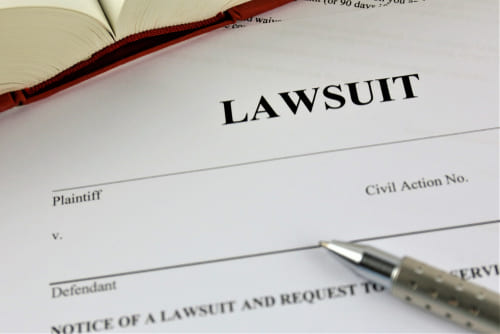 Nursing home abuse and injuries are serious issues that can have devastating consequences for the elderly residents who trust these facilities to provide them with proper care and support. When such incidents occur, pursuing a lawsuit can be a way to hold responsible parties accountable and seek justice for the victims. When filing a lawsuit against a nursing home, there are various factors that, if managed properly, are more likely to make a nursing home abuse lawsuit successful. Hiring an experienced attorney in Illinois can help shed light on the legal aspects of the situation that will likely play a crucial role in your case.
Nursing home abuse and injuries are serious issues that can have devastating consequences for the elderly residents who trust these facilities to provide them with proper care and support. When such incidents occur, pursuing a lawsuit can be a way to hold responsible parties accountable and seek justice for the victims. When filing a lawsuit against a nursing home, there are various factors that, if managed properly, are more likely to make a nursing home abuse lawsuit successful. Hiring an experienced attorney in Illinois can help shed light on the legal aspects of the situation that will likely play a crucial role in your case.
At Schwartz Injury Law, our experienced team of attorneys is well aware of what makes a nursing home lawsuit successful or unsuccessful. With our knowledge and resources, clients can feel confident knowing we will defend their rights and aggressively pursue a satisfactory case outcome.
Why Are Older Adults More Susceptible to Nursing Home Falls in Illinois?
 As we age, our bodies go through natural changes that can make us more vulnerable to accidents and injuries, especially in a nursing home setting. Older adults are more susceptible to falls due to a combination of factors, including age-related physical decline, medical conditions, medication side effects, and environmental hazards. If your loved one has fallen in their nursing home and is now injured, you may have legal options that you should be aware of. Call a qualified attorney to learn more.
As we age, our bodies go through natural changes that can make us more vulnerable to accidents and injuries, especially in a nursing home setting. Older adults are more susceptible to falls due to a combination of factors, including age-related physical decline, medical conditions, medication side effects, and environmental hazards. If your loved one has fallen in their nursing home and is now injured, you may have legal options that you should be aware of. Call a qualified attorney to learn more.
At Schwartz Injury Law, our team of highly trained attorneys has a proven track record of success when it comes to nursing home fall cases. If your loved one was injured in a nursing home fall, there is no law firm more respected in handling Illinois cases of nursing home abuse and neglect than Schwartz Injury Law.
Evidence in Nursing Home Injury and Abuse Cases in Illinois
 In nursing home injury cases in Illinois, evidence plays a crucial role in determining the outcome of the case. The right kind of evidence can make or break a case, providing proof that someone was injured, neglected, or abused in a nursing home. Understanding what kind of evidence is most useful and how it could be presented in court is essential for anyone in a nursing home injury case. It is always a good idea to work with an attorney to develop as strong a case as possible.
In nursing home injury cases in Illinois, evidence plays a crucial role in determining the outcome of the case. The right kind of evidence can make or break a case, providing proof that someone was injured, neglected, or abused in a nursing home. Understanding what kind of evidence is most useful and how it could be presented in court is essential for anyone in a nursing home injury case. It is always a good idea to work with an attorney to develop as strong a case as possible.
Types of Evidence in Nursing Home Injury Cases
In nursing home injury cases, evidence can take various forms, including:
-
Medical records
-
Witness statements
-
Photographs of the injuries
-
Expert testimony, such as from a doctor or nurse
Understanding the Difference Between Reasonable and Unreasonable Restraint at Nursing Homes in Illinois
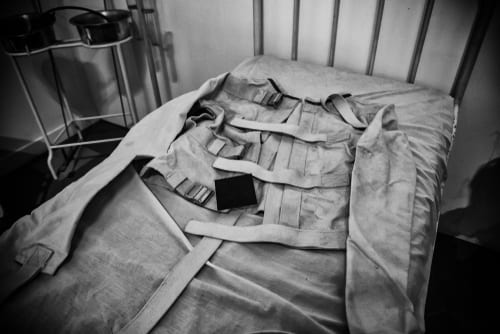 Nursing homes play a crucial role in providing care and support for elderly residents. Unfortunately, sometimes residents have to be restrained for their own safety, especially if they have the potential to hurt themselves or others.
Nursing homes play a crucial role in providing care and support for elderly residents. Unfortunately, sometimes residents have to be restrained for their own safety, especially if they have the potential to hurt themselves or others.
However, it can be very difficult to see someone you love being restrained. People often have concerns about the use of restraints in these facilities, leading to questions about the difference between reasonable and unreasonable restraints in Illinois. If you are afraid that someone you love is being wrongfully restrained in their care center and you would like to learn more about potential legal actions you can take, start with the basics of what you need to know about reasonable and unreasonable restraints in Illinois nursing homes.
Nursing Home Neglect and Heart Issues in Illinois
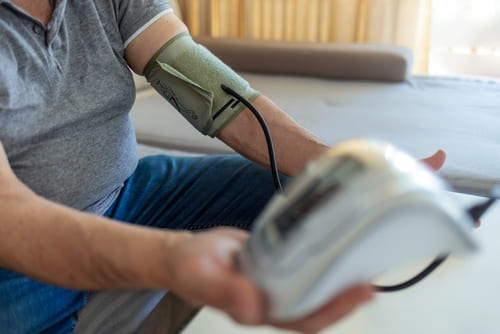 Nursing home residents with heart conditions require specialized care and attention to manage their health effectively. Sadly, instances of neglect in nursing homes can have serious consequences for residents with underlying heart conditions. Family members and caregivers must be especially vigilant in recognizing signs of neglect and taking appropriate action to ensure the well-being of their loved ones. If you have a loved one with a heart condition and they are suffering from abuse or neglect, contact a lawyer in Illinois right away.
Nursing home residents with heart conditions require specialized care and attention to manage their health effectively. Sadly, instances of neglect in nursing homes can have serious consequences for residents with underlying heart conditions. Family members and caregivers must be especially vigilant in recognizing signs of neglect and taking appropriate action to ensure the well-being of their loved ones. If you have a loved one with a heart condition and they are suffering from abuse or neglect, contact a lawyer in Illinois right away.
Medication Mismanagement Can Aggravate Heart Problems
One common sign of nursing home neglect in residents with heart conditions is a lack of proper medication management. Failure to administer prescribed medications on time in the correct dosage can have detrimental effects on residents with heart conditions, leading to complications such as heart failure, arrhythmia, and increased risk of heart attacks. Family members should monitor medication schedules and communicate with nursing home staff to ensure compliance with treatment plans.
Most Common Forms of Physical Abuse at Nursing Homes
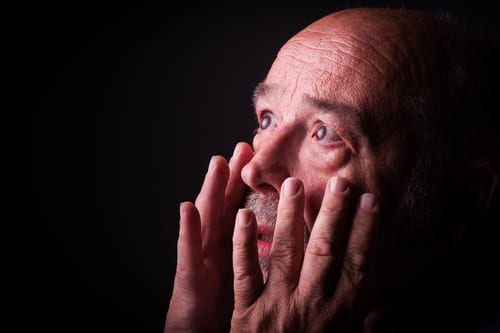 Physical abuse in nursing homes is a serious issue that sadly occurs far too often. It can take many forms, ranging from hitting and slapping to restraining residents inappropriately. Understanding the most common forms of physical abuse in nursing homes is important if you have a loved one currently living in a nursing home facility. If you think your loved one is being physically abused at their nursing home facility, contact a lawyer in Illinois to seek a legal remedy to this disturbing situation.
Physical abuse in nursing homes is a serious issue that sadly occurs far too often. It can take many forms, ranging from hitting and slapping to restraining residents inappropriately. Understanding the most common forms of physical abuse in nursing homes is important if you have a loved one currently living in a nursing home facility. If you think your loved one is being physically abused at their nursing home facility, contact a lawyer in Illinois to seek a legal remedy to this disturbing situation.
Physical Abuse Can Take Many Forms
One of the most prevalent forms of physical abuse in nursing homes is hitting or slapping residents. This type of abuse can leave visible marks such as bruises, cuts, or welts on the resident’s body. In some cases, the abuse may be ongoing, leading to long-term physical and emotional harm. Family members and caregivers alike must be vigilant in looking for any signs of physical abuse, such as unexplained injuries or changes in a resident’s behavior.
Dehydration in Nursing Home Abuse Cases
 We trust that loved ones will be properly cared for when they enter nursing homes. Unfortunately, cases of nursing home abuse and neglect remain all too common, with one particularly alarming issue being dehydration. Dehydration can have severe consequences for the elderly population, leading to serious health complications and even death. If you are concerned your loved one is not receiving the hydration and care they need and deserve, contact an attorney in Illinois to ensure this matter can be dealt with promptly and with the full strength of the law
We trust that loved ones will be properly cared for when they enter nursing homes. Unfortunately, cases of nursing home abuse and neglect remain all too common, with one particularly alarming issue being dehydration. Dehydration can have severe consequences for the elderly population, leading to serious health complications and even death. If you are concerned your loved one is not receiving the hydration and care they need and deserve, contact an attorney in Illinois to ensure this matter can be dealt with promptly and with the full strength of the law
Recognizing the Signs of Dehydration
Dehydration occurs when the body loses more fluids than it takes in, and it can be particularly dangerous for older people. Family members should be aware of the following signs that may indicate dehydration:




